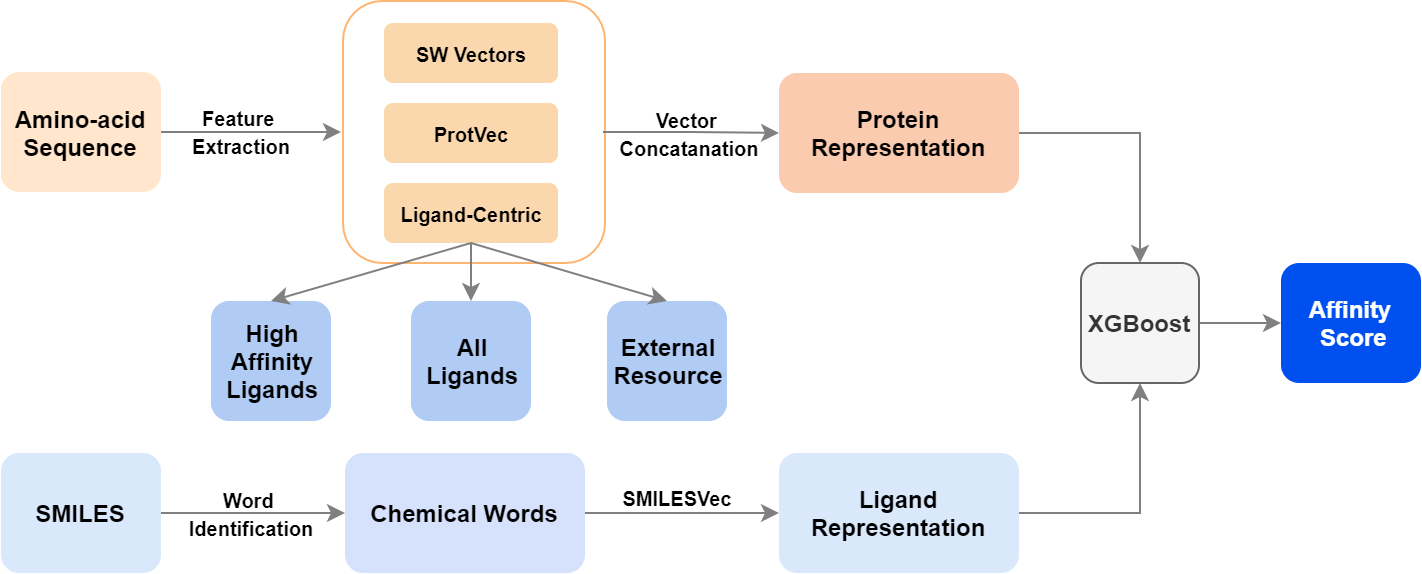ChemBoost is a chemical-language based drug - target affinity prediction framework. The models in ChemBoost leverage distributed chemical word vectors to represent chemicals and a combination of sequence-driven and ligand-centric features to represent proteins. Thanks to chemical-language based representations, several ChemBoost models achieve state-of-the-art level prediction performance on BDB and KiBA data sets and a demonstrated robustness to cases where functional protein similarity cannot be inferred from the similarities in the protein sequence.
The experiments in ChemBoost is run with the following configuration:
python=3.7.3
numpy=1.16.4
pandas=0.24.2
xgboost=0.90
sklearn=0.21.2
gensim=3.8.0
sentencepiece==0.1.95
To run the experiments from scratch:
- Install the packages listed above. (Using
condais recommended, except sentencepiece which can be installed throughpip.) - Download the datasets from this link and place them under the
datafolder. - Then use the following command format under the root directory in order to replicate results for a model:
python run_experiments.py {dataset_name} {model_name} {save_name}
where {dataset_name} is replaced with either kiba or bdb and {model_name} expects the input to be in the models in the paper. See Line 15 in src/utils.py for a full list of acceptable model names. Last, you can set {save_name} any filename of your choice.
If you use ChemBoost in your study, please cite:
@article{ozccelik2020chemboost,
title={ChemBoost: A Chemical Language Based Approach for Protein--Ligand Binding Affinity Prediction},
author={{\"O}z{\c{c}}elik, R{\i}za and {\"O}zt{\"u}rk, Hakime and {\"O}zg{\"u}r, Arzucan and Ozkirimli, Elif},
journal={Molecular Informatics},
year={2020},
publisher={Wiley Online Library}
}
